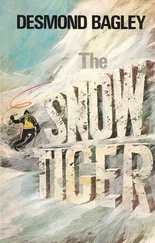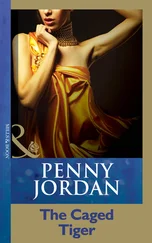"Are you from a top caste or bottom caste, boy?"
I didn't know what he wanted me to say, so I flipped both answers-I could probably have made a good case either way-and then said, "Bottom, sir."
Turning to Mukesh Sir, the old man said, "All our employees are top caste. It won't hurt to have one or two bottom castes working for us."
Mukesh Sir looked at me with narrowed eyes. He didn't know the village ways, but he had all the cunning of the landlords.
"Do you drink?"
"No, sir. In my caste, we never drink."
"Halwai…" Mr. Ashok said with a grin. "Are you a sweet-maker? Can you cook for us while you're not driving?"
"Certainly, sir. I cook very well. Very tasty sweets. Gulab jamuns, laddoos, anything you desire," I said. "I worked at a tea shop for many years."
Mr. Ashok seemed to find this amusing. "Only in India," he said. "Your driver can also make sweets for you. Only in India. Start from tomorrow."
"Not so fast," Mukesh Sir said. "First we have to ask about his family. How many are they, where they live, everything. And one more thing: how much do you want?"
Another test.
"Absolutely nothing, sir. You're like a father and mother to me, and how can I ask for money from my parents?"
"Eight hundred rupees a month," he said.
"No, sir, please-it's too much. Give me half of that, it's enough. More than enough."
"If we keep you beyond two months, it'll go to one thousand five hundred."
Looking suitably devastated, I accepted the money from him.
Mukesh Sir was not yet convinced about me. He looked me up and down and said, "He's young. Don't we want someone older?"
The Stork shook his head. "Catch 'em young, and you can keep 'em for life. A driver in his forties, you get, what, twenty years of service, then his eyes fail. This fellow will last thirty, thirty-five years. His teeth are solid, he's got his hair, he's in good shape."
He sucked on his betel juice, which was filling up his mouth, turned, and spat out a jet of red liquid to the side.
Then he told me to come back in two days.
He must have phoned his man in Laxmangarh. And then that man must have gone and spoken to Kusum, and asked the neighbors about us, and phoned back: "He's got a good family. They've never made any trouble. Father died some years ago of TB. He was a rickshaw-puller. Brother is in Dhanbad too, a worker in the tea shops. No history of supporting Naxals or other terrorists. And they don't move about: we know exactly where they are."
That last piece of information was very important. They had to know where my family was, at all times.
I have not told you yet, have I, about what the Buffalo did to his domestic servant. The one who was supposed to guard his infant son, who got kidnapped by the Naxals and then tortured and killed. The servant was one of our caste, sir. A Halwai. I had seen him once or twice when I was a boy.
The servant said he had nothing to do with the kidnapping; the Buffalo did not believe him and got four of his hired gunmen to torture the servant. Then they shot him through the head.
Fair enough. I would do the same to someone who let my son get kidnapped.
But then, because the Buffalo was sure that the man had deliberately let the child be kidnapped, for money, he also went after the servant's family. One brother was set upon while working in the fields; beaten to death there. That brother's wife was finished off by three men working together. A sister, still unmarried, was also finished off. Then the house where the family had lived was surrounded by the four henchmen and set on fire.
Now, who would want this to happen to his family, sir? Which inhuman wretch of a monster would consign his own granny and brother and aunt and nephews and nieces to death?
The Stork and his sons could count on my loyalty.
When I came back, the Nepali guard opened the gate without a word. I was inside the compound now.
As far as masters go, Mr. Ashok, Mukesh Sir, and the Stork were better than nine in ten. There was always enough food in the house for the servants. On Sundays you even got a special dish, rice mixed with small red chunks of boneless chicken. I had never had a regular chicken dish in my life until then; it made you feel like a king, eating chicken Sunday after Sunday and then licking your fingers. I had a covered room to sleep in. True, I had to share it with the other driver, a grim-looking fellow named Ram Persad, and he had the nice big bed, while I had to sleep on the floor-still a covered room's a covered room, and much nicer than sleeping on the road, as Kishan and I had been doing all the time we were in Dhanbad. Above all, I got the thing that we who grow up in the Darkness value most of all. A uniform. A khaki uniform!
The next day I went to the bank-the one that had a wall made all of glass. I saw myself reflected in the glass panes-all in khaki. I walked back and forth in front of that bank a dozen times, just gaping at myself.
If only they had given me a silver whistle, I would have been in paradise!
Kishan came once a month to see me. Kusum had decided that I could keep ninety rupees a month for myself: the rest would go straight to Kishan-who would send it straight to her, in the village. I gave him the money every month through the black bars of the rear gate, and we would talk for a few minutes before the Nepali shouted, "That's enough-the boy has work to do now!"
The work of a number two driver was simple. If the number one driver, Ram Persad, was busy driving the masters around town in the Honda City, and someone in the house wanted to go to the market, or to a coal mine, or to the train station, I got into the Maruti Suzuki and drove them there. Otherwise I had to stay around the house and make myself useful.
Now, I say they took me on as their "driver." I don't exactly know how you organize your servants in China. But in India -or, at least, in the Darkness-the rich don't have drivers, cooks, barbers, and tailors. They simply have servants.
What I mean is that anytime I was not driving the car, I had to sweep the floor of the courtyard, make tea, clean cobwebs with a long broom, or chase a cow out of the compound. There was one thing I was not allowed to do, and this was to touch the Honda City: Ram Persad alone had the right to drive it and clean it. In the evenings I'd watch him wash the sleek exterior of the car with a soft cloth. And I'd burn with envy.
I could see, even from outside, that this was a beautiful, modern car, with all the necessary comforts: a speaker system, A/C, nice glossy leather seats, and a big stainless-steel spittoon in the back. It must be like paradise to drive such a nice car. All I had was a battered old Maruti Suzuki.
One evening, as I was watching, Mr. Ashok came and poked his nose around the car. I was discovering that he was a very inquisitive man.
"What's that for? That shiny thing in the back."
"Spittoon, sir."
"What?"
Ram Persad explained. This spittoon was for the Stork, who liked to chew paan . If he spat the paan out the window the paan might streak the sides of the car, so he spat near his feet, into the spittoon, which the driver washed and cleaned at the end of every ride.
"Disgusting," Mr. Ashok said.
He was asking about something else when Mukesh Sir's son Roshan came running up to us with a plastic bat and ball in his hand.
Ram Persad snapped his fingers for me.
(Playing cricket with any brat in the household who wanted to play-and letting him win, handsomely-was one of the prescribed duties of driver number two.)
Mr. Ashok joined the game. He stood as the wicket-keeper while I bowled full tosses to the brat.
"I'm Azharuddin, captain of India!" the boy shouted every time he hit a six or a four.
Читать дальше












